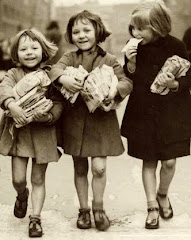Art Spiegelman’s graphic novel Maus fascinated me. While I have had experience with Holocaust survival stories before, the use of the graphic novel format and the cleverly chosen personification of the mice, cats, and pigs as central characters within the story was an interesting addition to the story. Spiegelman was able to take a known story and make it new. I quickly read through the story and was highly engaged by the text and images.
I thought that Spiegelman’s presentation of the text was very well done. Spiegelman makes the story seem more believable and creditable by placing himself and his father in the text as they interact with one another through both the retelling of his father’s story and their relationships with each other in the present. By transitioning back and forth between the retelling of his father’s life during the years preceding and during the onset of WWII he is able to illustrate how surviving the war has shaped his father and to show the strains of those effects on both their lives. The opening images of Spiegelman crying home to his father about his friends was particularly interesting. He says, “Friends? Yours Friends? If you lock them together in a room with no food for a week….then you could see what is it, friends!” (6). Later in the text, Spiegelman tries to justify his father’s pack-rat tendencies by pointing out that the need to horde might be a result of his past experiences. I think this is an interesting point to note from his life and it helped to take the story farther—from just the story of his survival to the story of his life long after his trials ended.
I am glad that the story started before the beginning of the war with the relationship between Spiegelman’s mother and father. During the years that they were courting, the National Socialist Party was gaining power and taking control of Germany. It was interesting to read about the day-to-day life in Poland and the “rumors” they heard about the Germans. For them the Nazi’s were a piece of the background in Europe and they had no idea what consequences were about to come their way.
I thought Spiegelman Sr.’s account of life in Poland during the beginning years of the war was incredibly insightful. He really captured the complexity of the individuals around him. I thought it said a lot about human nature to note how people reacted during the war. Come people were willing to illegally harbor runaway Jews, others were more than willing to rat each other out—both Polish and Jewish citizens alike. I think people show their true colors in desperate situations and it was amazing to see how selfish or selfless people became within the book. Reading how people changed—for example, the maid who was once a part of the Spiegelman family—it made me think about how I would react to being put in the different situations presented in the book. I would like to think that I would be able to do the right thing, no matter what, but the story definitely makes you give it a serious thought.
I think the presentation of the book and the story within it can help make the tragedy of the Holocaust more engaging for anyone who reads it. I enjoyed puzzling out my own interpretation of why Spiegelman chose to use animals within the story. The illustrations add so much to the story. It’s amazing how the detailed illustrations are able to capture the emotions of the characters within the story; the black and white presentation adds to the tragic circumstances of the characters and makes their plight that much more serious. Through the images I was able to read the expressions of the character’s faces the same way I read both the dialogue and text boxes within the frames themselves. I doing this I was able to have a better understanding of how Spiegelman Sr.’s life in Poland. Overall, I love how the book is able to take a serious part of our past and present it in a way that is informative, engaging, and moving despite its use of illustrations.
Subscribe to:
Post Comments (Atom)

Meredith, this book sounds really interesting, and I have a copy ready to go and your thoughts make me even more excited to read it. Great look at themes and issues in the book. I wonder, does it make you want to read Maus II?
ReplyDelete